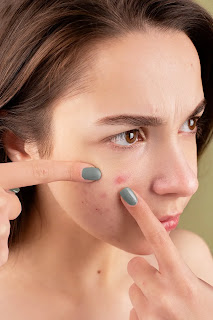Acne No More: 5 Simple Homemade Therapy For a Clear Skin
Acne or pimples are a common skin problem affecting many people. While there are various products available in the market to treat pimples, some people prefer to use homemade remedies for a more natural and cost-effective solution. In this article, we will discuss several home remedies that have been found to be effective in treating pimples.
Introduction
Acne is a skin condition that affects people of all ages and can be caused by several factors such as hormonal changes, genetics, and lifestyle choices. While acne can be treated with over-the-counter products or prescription medications, some people prefer to use home remedies to address the problem. Homemade remedies can be a gentler and more natural way to treat pimples, and they are often more cost-effective as well.
Tea Tree Oil
Tea tree oil is a natural antiseptic that has been used for centuries to treat various skin conditions, including acne. It is derived from the leaves of the tea tree plant and is known for its antimicrobial and anti-inflammatory properties.
What it can do: Tea tree oil helps to kill the bacteria that cause pimples, reducing inflammation and promoting clearer skin. It also has a soothing effect on the skin and can help to reduce redness and swelling associated with acne.
How to apply: To use tea tree oil for pimple treatment, dilute a few drops of the oil with a carrier oil such as coconut oil or jojoba oil. Apply the mixture to the affected area using a cotton swab. Leave it on for 10 to 15 minutes, and then rinse it off with water. It is important to note that tea tree oil can be very strong and may cause skin irritation for some people, so it is important to dilute it with a carrier oil before use.
Honey
Honey is a natural sweetener that is also known for its antibacterial and moisturizing properties. It has been used for centuries to treat various skin conditions, including acne.
What it can do: Honey helps to kill the bacteria that cause pimples, reducing inflammation and promoting clearer skin. It also has a moisturizing effect on the skin, which can help to prevent dryness and flakiness that can worsen acne.
How to apply: To use honey for pimple treatment, apply a thin layer of raw, organic honey to the affected area. Leave it on for 10 to 15 minutes, and then rinse it off with water. Pat your skin dry and repeat the process once or twice a week for best results.
Aloe Vera
Aloe vera is a natural plant extract that has been used for centuries to treat various skin conditions, including acne. It is derived from the leaves of the aloe vera plant and is known for its anti-inflammatory and moisturizing properties.
What it can do: Aloe vera helps to reduce redness and swelling associated with acne, as well as hydrate the skin to prevent dryness that can worsen the condition.
How to apply: To use aloe vera for pimple treatment, extract the gel from an aloe vera leaf and apply it to the affected area. Leave it on for 10 to 15 minutes, and then rinse it off with water. Repeat the process once or twice a day for best results.
Witch Hazel
Witch hazel is a natural astringent that has been used for centuries to treat various skin conditions, including acne. It is derived from the leaves and bark of the witch hazel plant and is known for its anti-inflammatory and astringent properties.
What it can do: Witch hazel helps to reduce redness and swelling associated with acne, as well as tighten the skin to reduce oiliness that can contribute to pimple formation. It also has an astringent effect, helping to cleanse the skin and remove excess oil and dirt that can clog pores and lead to pimples.
How to apply: To use witch hazel for pimple treatment, apply a small amount of witch hazel to a cotton ball and dab it onto the affected area. Leave it on for 10 to 15 minutes, and then rinse it off with water. Repeat the process once or twice a day for best results.
Lemon Juice
Lemon juice is a natural astringent that has been used for centuries to treat various skin conditions, including acne. It is rich in vitamin C, which is an antioxidant that can help to improve the overall health of the skin.
What it can do: Lemon juice helps to reduce the oiliness of the skin, which can contribute to pimple formation. It also has a natural astringent effect, helping to cleanse the skin and remove excess oil and dirt that can clog pores and lead to pimples.
How to apply: To use lemon juice for pimple treatment, simply apply a small amount of fresh lemon juice to the affected area with a cotton swab or ball. Leave it on for 10 to 15 minutes and then rinse it off with water. Repeat the process once or twice a day for best results.
It's important to note that while these home remedies can be effective in treating pimples, they may not work for everyone. It may take some experimentation to find the remedy that works best for you, and it's always important to test any new skincare product or remedy on a small patch of skin before applying it to a larger area to ensure that it does not cause any adverse reactions.

